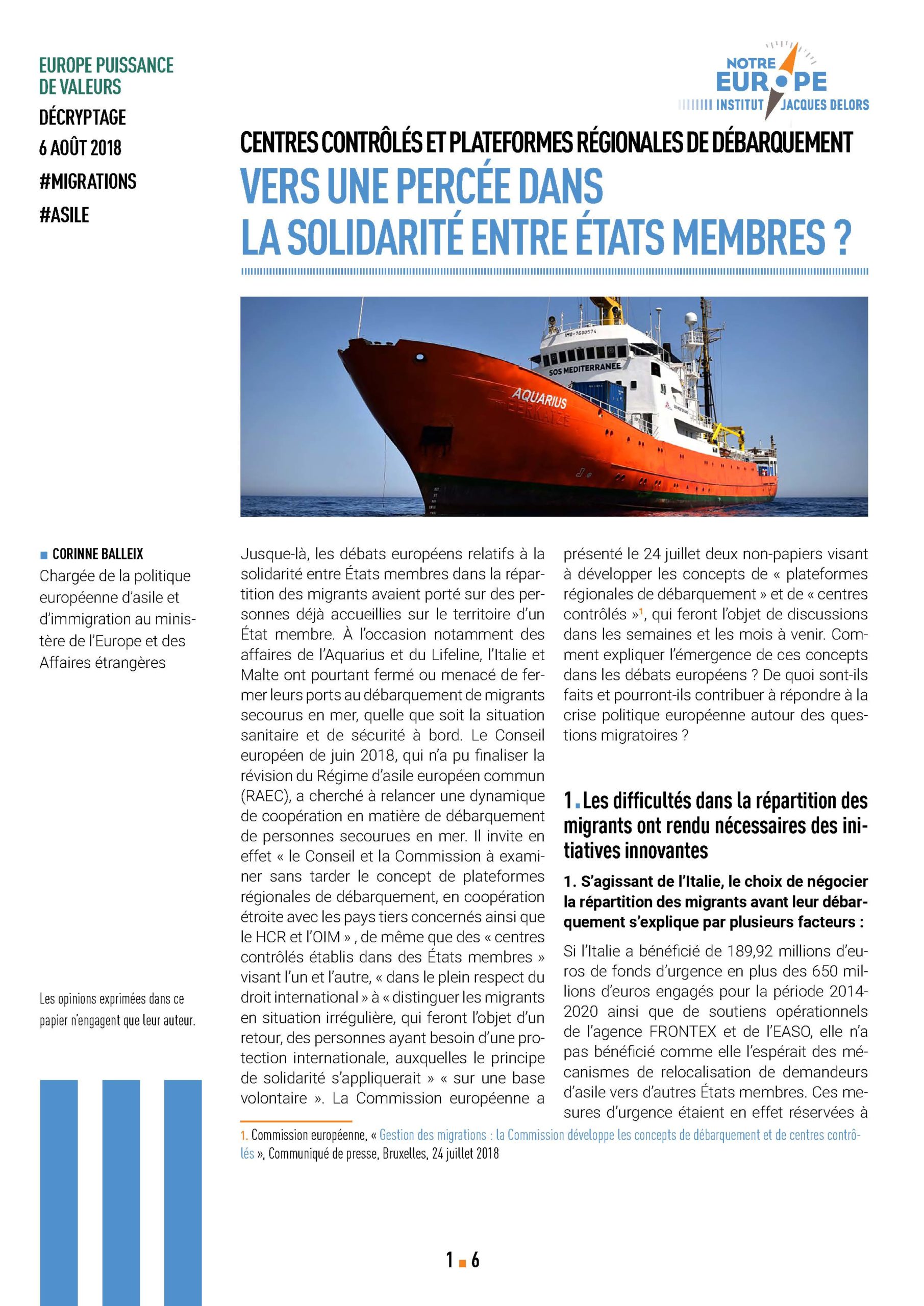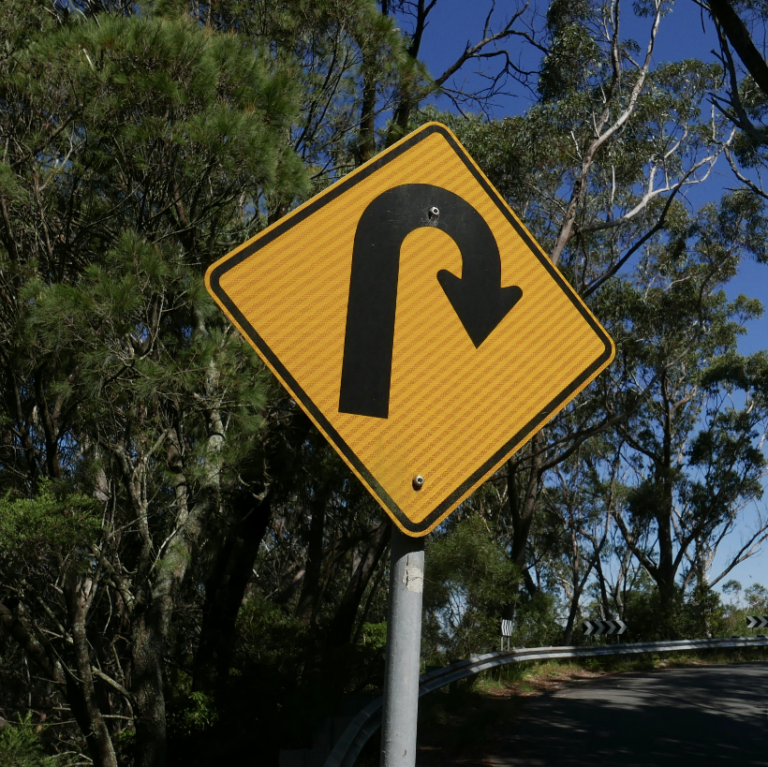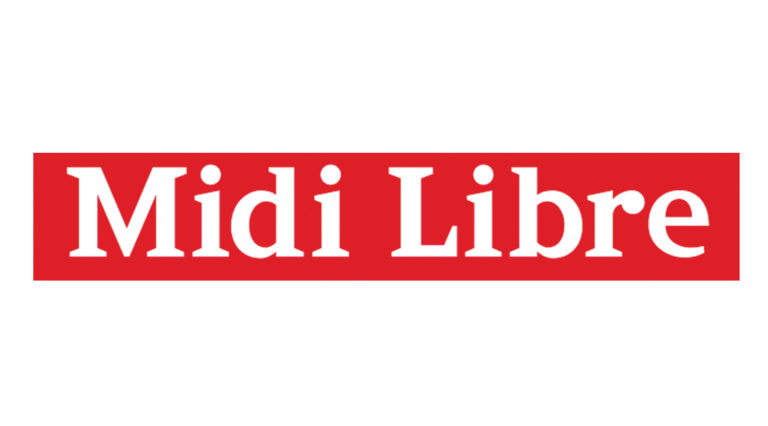Brief
Controlled centers and regional disembarkation platforms: towards a breakthrough in solidarity between Member States?
Until then, the European debates on solidarity between member states in the distribution of migrants had focused on persons already admitted to the territory of a member state. On the occasion of the Aquarius and Lifeline cases in particular, Italy and Malta have closed or threatened to close their ports on the landing of migrants rescued at sea, regardless of the health and safety situation on board.
The June 2018 European Council, which was unable to finalize the revision of the Common European Asylum System (CEAS), sought to revive a dynamic of cooperation in the landing of people rescued at sea. Council and the Commission to consider without delay the concept of regional landing platforms, in close cooperation with the relevant third countries, as well as UNHCR and IOM “, as well as” controlled centers established in Member States “aimed at both “in full respect of international law” to “distinguish between irregular migrants, who will be returned, persons in need of international protection, to whom the principle of solidarity “apply” “on a voluntary basis”. The European Commission presented on July 24 two non-papers aimed at developing the concepts of “regional disembarkation platforms” and “controlled centers“, which will be discussed in the weeks and months to come.
In this policy brief, Corinne Balleix, in charge of the European asylum and immigration policy at the Ministry of Europe and Foreign Affairs, explains the emergence of these concepts in European debates: what are they made of and will be able to they help to respond to the European political crisis around migration issues?
Only in French
SUR LE MÊME THÈME
ON THE SAME THEME
PUBLICATIONS
The hasty return of Syrian refugees would not serve European interests

[FR] Migration: A look back at the February 9 European Council

Moldova and the war

MÉDIAS
MEDIAS
Le défi des migrations africaines en Europe

Union européenne : les demandes d’asile au plus haut depuis sept ans

Naufrage en Grèce: des élus prônent une opération européenne de sauvetage en mer

ÉVÉNEMENTS
EVENTS
The EU’s response to Ukrainian refugees three months on

Académie Notre Europe | “Europe of migration” session [FR]

Académie Notre Europe : “Europe of migration” session [FR]

Euroquestions | Ukrainian refugees: hosting in Europe and impact on European migration policy? [FR]

EU-African Union Summit: a renewed partnership on migration and mobility? [ENG]

Migration, asylum, mobility and integration in Europe: inseparable common values | Presentation of the report published in December 2021 [FR]

Conference | Integration in Europe : Oxalá, Hopelijk, avec un peu de chance… | Perspectives from Belgium, France and Portugal [FR]

EU migration and asylum policy: a fresh start?

EU migration and asylum policy: a fresh start?

Webinaire | Nouveau pacte pour la migration : la Commission peut-elle reprendre la main sur le dossier migratoire ?

Webinaire | Nouveau pacte pour la migration : la Commission peut-elle reprendre la main sur le dossier migratoire ?

Euroquestions | Relance et puissance : mots d’ordre de la rentrée européenne

Des réponses européennes
à l’asile et aux migrations

Paris, 17 May 2019 – Académie Notre Europe : Europe and migrations

Paris, 16 April 2019 – Think migration and development together

Paris, 12 February 2019 – Eurociné: Screening-debate of the movie DJAM

Brussels, 28 January 2019 – Presentation of the Jacques Delors Institute’s report on migrations

Pantin, 6 October 2018 – Can the European Union better manage the migration flow?

Namur, 21 September 2018 – Migration policy and EU: which policy for Common good?

Paris, 8 February 2018 – Eurociné: “School of Babel”


















